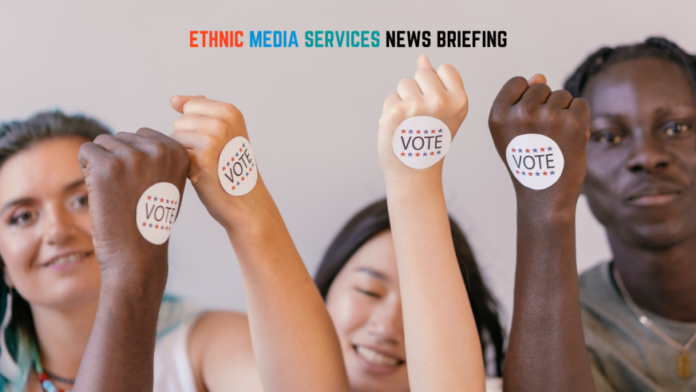Vidya Sethuraman
India Post News Service
With the Presidential elections just three weeks away and early voting already underway or about to begin in most states, it’s crucial to have accurate and thorough information to ensure our voices count. While some experts are sounding the alarm on threats to election sites and officials and the safety of the ballots, others are working around the clock to ensure communities’ access. EMS briefing on Oct 18 brought together top national and local election experts who discussed whether all eligible voters are registered and able to vote, shared a roundup of new state voting laws that could facilitate or hinder participation, and delved into some of the most significant threats to conducting safe and secure elections.
Celina Stewart, CEO, League of Women Voters of the United States introduced the Vote411.org website established by the organization to provide voters with one-stop services, including voting registration inquiries and updates, candidates Information, campaign fund disclosure, polling station information, etc., and provides bilingual services in English and Spanish. She emphasized that the organization has branches in various states and actively holds candidate forums to promote dialogue between voters and candidates. At the same time, we will continue to monitor false information on the Internet to ensure that voters receive correct information. Since some voters may be expelled without knowing it, she called on voters to check and update their registration information in a timely manner.
Andrew Garber, counsel, Voting Rights and Elections Program, Brennan Center for Justice also pointed out that between 2020 and 2024, 30 states in the United States passed 78 restrictive voting bills, and 41 states passed 168 bills to relax voting restrictions. Major restrictions include tightening postal voting regulations, shortening the voter registration period, and limiting voting assistance services. Garber said the restrictions were mostly justified to prevent electoral fraud but lacked concrete evidence to support them.
May Tiwamangkala, Democracy Defender Director at Arizona Asian American Native Hawaiian and Pacific Islander for Equity shared the challenges facing the state. She pointed out that newly passed regulations require voters to provide stricter proof of citizenship. If they cannot provide documents within the specified period, voters may be removed from the rolls and may even face criminal investigation. Factors such as rising local anti-immigration sentiment, rising cost of living and political polarization have further weakened voters’ willingness to vote.
Pape finally emphasized that the vote counting and certification phase after the election is the period most likely to trigger political violence, and state governors should unite to condemn violence and ensure the safety of election officials. He and Garber also called on the media to emphasize that the voting experience of most voters will be positive, so that voters can plan their voting and maintain confidence in the election process.







